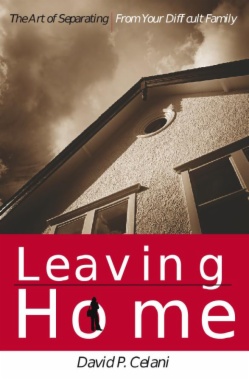Why, after a childhood of emotional neglect and abuse, would a man move next door to the very parents who caused him pain? And how can a woman emerge from her mother's control in order to form healthy adult relationships?
Giving up family attachments that failed to meet our needs as children, David Celani argues, is the hardest psychological task an adult can undertake. Yet the reality is that many adults re-create the most painful aspects of their early relationships with their parents in new relationships with peers and romantic partners, frustrating themselves and discouraging them from leaving their family of origin. Leaving Home emphasizes the life-saving benefits of separating from destructive parents and offers a viable program for personal emancipation.
Celani's program is based on Object-Relations Theory, a branch of psychoanalysis developed by Scottish analyst Ronald Fairbairn. The human personality, Fairbairn argued, is not the result of inherited (and thus immutable) instincts. Rather, the developing child builds internal relational templates that guide his future interactions with others based on the conscious and unconscious memories he internalized from his primary relationship—the one he experienced with his parents. While a child's attachment to parents who were neglectful or even abusive is not uncommon, there is a way out. Articulate, sensitive, and replete with examples from Celani's twenty-six years of clinical practice, this book outlines the practical steps to leaving home.
- Table of Contents
- Acknowledgments
- Introduction
- 1. The Building Blocks of Our Personality
- 2. How Our Defenses Play
“Hide and Seek” with Reality
- 3. Staying Home
- 4. Preparing for Change
- 5. Leaving Home
- References
- Index

